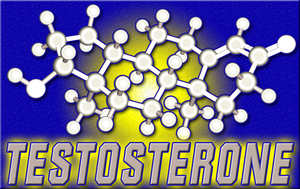Introduction to Personalized Medicine
Personalized medicine represents a revolutionary shift in healthcare, moving away from a one-size-fits-all approach to treatments that are tailored to the individual's unique genetic makeup. For American males, this advancement is particularly relevant in the realm of testosterone therapy, where genetic variations can significantly influence treatment outcomes.
Understanding Testosterone and Its Importance
Testosterone is a crucial hormone in males, responsible for regulating a variety of bodily functions, including muscle mass, bone density, and sexual health. As men age, testosterone levels naturally decline, which can lead to symptoms such as fatigue, decreased libido, and mood changes. Traditional testosterone replacement therapy (TRT) has been a common solution, but its effectiveness can vary widely among individuals.
The Role of Genetics in Testosterone Therapy
Recent advances in genomics have revealed that genetic variations can affect how individuals respond to TRT. For instance, polymorphisms in genes such as the androgen receptor (AR) gene can influence the sensitivity of tissues to testosterone. Men with certain AR gene variants may require different dosages or formulations of testosterone to achieve optimal results.
Tailoring Therapy Based on Genetic Profiles
By analyzing a patient's DNA, healthcare providers can identify specific genetic markers that influence testosterone metabolism and receptor sensitivity. This information allows for the customization of TRT regimens, optimizing both efficacy and safety. For example, a man with a genetic predisposition to metabolize testosterone quickly might benefit from a sustained-release formulation, while another with heightened receptor sensitivity might require a lower dose to avoid side effects.
Benefits of Personalized Testosterone Therapy
Personalized testosterone therapy offers several advantages over traditional approaches. Firstly, it can enhance treatment efficacy by ensuring that the therapy is precisely matched to the patient's biological needs. Secondly, it can reduce the risk of adverse effects by minimizing the likelihood of over- or under-dosing. Finally, it can improve patient satisfaction and adherence to treatment, as individuals are more likely to experience positive outcomes.
Implementing Personalized Medicine in Clinical Practice
To integrate personalized medicine into testosterone therapy, healthcare providers must first conduct a comprehensive genetic analysis of their patients. This involves collecting a DNA sample, typically through a simple cheek swab, and sending it to a specialized laboratory for analysis. The results are then used to develop a tailored treatment plan, which is continuously monitored and adjusted as needed.
Challenges and Considerations
Despite its potential, personalized testosterone therapy faces several challenges. The cost of genetic testing and the need for specialized expertise can be barriers to widespread adoption. Additionally, the field is still evolving, and more research is needed to fully understand the impact of genetic variations on TRT. However, as technology advances and costs decrease, personalized medicine is likely to become increasingly accessible to American males seeking optimal testosterone therapy.
Future Directions in Personalized Testosterone Therapy
The future of personalized testosterone therapy looks promising, with ongoing research aimed at identifying additional genetic markers and refining treatment protocols. As our understanding of the genetic basis of testosterone metabolism and receptor function grows, so too will our ability to tailor therapies to the individual. This could lead to even more effective and personalized approaches to managing testosterone levels in American males.
Conclusion
Personalized medicine offers a new frontier in testosterone therapy for American males, promising more effective and safer treatments through the use of genetic information. By tailoring therapy to an individual's DNA, healthcare providers can optimize outcomes and improve quality of life. As this field continues to evolve, it holds the potential to transform the way testosterone therapy is delivered, ensuring that each man receives the most appropriate treatment for his unique needs.
Contact Us Today For A Free Consultation

- Genetics and Testosterone: Interplay, Influences, and Personalized Health Strategies [Last Updated On: February 18th, 2025] [Originally Added On: February 18th, 2025]
- Stoking Man’s Mettle: An In-Depth Look at Testosterone [Last Updated On: February 25th, 2025] [Originally Added On: February 25th, 2025]
- Unraveling the Testosterone Enigma: Navigating the Masculine Hormone's Impact on Life [Last Updated On: February 26th, 2025] [Originally Added On: February 26th, 2025]
- Unraveling Spectrum: Transitioning Through the Testosterone Timeline [Last Updated On: February 27th, 2025] [Originally Added On: February 27th, 2025]
- Unveiling the Realm Beyond Muscles: Illuminating the Comprehensive Merits of Optimum Testosterone Levels [Last Updated On: February 28th, 2025] [Originally Added On: February 28th, 2025]
- Unraveling the Testosterone Narrative: Distinguishing Truths from Fallacies [Last Updated On: February 28th, 2025] [Originally Added On: February 28th, 2025]
- Unlocking Vitality and Vigor: Unfolding the Secrets of Testosterone [Last Updated On: March 1st, 2025] [Originally Added On: March 1st, 2025]
- Empowering the Androgenic Alchemy: Natural Diet Strategies to Amplify Testosterone Secretion [Last Updated On: March 2nd, 2025] [Originally Added On: March 2nd, 2025]
- Optimizing Testosterone Levels Through Exercise: Mechanisms, Effective Workouts, and Age-Related Impacts [Last Updated On: March 3rd, 2025] [Originally Added On: March 3rd, 2025]
- Impact of Testosterone on Mental Health and Cognitive Functions [Last Updated On: March 4th, 2025] [Originally Added On: March 4th, 2025]
- Understanding Testosterone's Role in Male Health and Development Across Lifespan [Last Updated On: March 5th, 2025] [Originally Added On: March 5th, 2025]
- Understanding Testosterone's Role in Male Health and Development Across the Lifespan [Last Updated On: March 6th, 2025] [Originally Added On: March 6th, 2025]
- Optimizing Testosterone Levels Naturally: Diet, Exercise, Sleep, Stress, and Lifestyle Strategies [Last Updated On: March 7th, 2025] [Originally Added On: March 7th, 2025]
- Advancements in Testosterone Therapy: Enhancing Men's Health and Quality of Life [Last Updated On: March 8th, 2025] [Originally Added On: March 8th, 2025]
- Optimizing Male Health: Managing Testosterone Decline for Vitality and Well-Being [Last Updated On: March 9th, 2025] [Originally Added On: March 9th, 2025]
- Testosterone's Vital Role in Women's Health: Insights for American Males [Last Updated On: March 11th, 2025] [Originally Added On: March 11th, 2025]
- Unlocking the Potential: The Future of Hormonal Health Through Testosterone Research [Last Updated On: March 12th, 2025] [Originally Added On: March 12th, 2025]
- The Nocturnal Boost: How Sleep Fuels Testosterone Production in American Men [Last Updated On: March 12th, 2025] [Originally Added On: March 12th, 2025]
- Navigating Hormonal Harmony: The Interplay of Stress, Cortisol, and Testosterone in American Men [Last Updated On: March 13th, 2025] [Originally Added On: March 13th, 2025]
- Unleashing Potential: The Role of Testosterone in Athletic Performance Among American Males [Last Updated On: March 15th, 2025] [Originally Added On: March 15th, 2025]
- Understanding and Managing Low Testosterone in American Men: Symptoms, Causes, and Treatments [Last Updated On: March 19th, 2025] [Originally Added On: March 19th, 2025]
- Testosterone Enhancement: Supplements, Natural Remedies, and Medical Interventions for American Males [Last Updated On: March 19th, 2025] [Originally Added On: March 19th, 2025]
- Testosterone's Impact on Cardiovascular Health in American Males: A Comprehensive Overview [Last Updated On: March 19th, 2025] [Originally Added On: March 19th, 2025]
- Testosterone's Role in Enhancing Workplace Productivity and Drive for American Males [Last Updated On: March 19th, 2025] [Originally Added On: March 19th, 2025]
- Environmental Toxins' Impact on Male Testosterone Levels and Health [Last Updated On: March 19th, 2025] [Originally Added On: March 19th, 2025]
- Testosterone's Impact on Mood, Memory, and Motivation in American Males [Last Updated On: March 19th, 2025] [Originally Added On: March 19th, 2025]
- Testosterone's Crucial Role in Immune Health for American Males [Last Updated On: March 20th, 2025] [Originally Added On: March 20th, 2025]
- Testosterone Revolution: Redefining Masculinity and Enhancing Men's Health in America [Last Updated On: March 21st, 2025] [Originally Added On: March 21st, 2025]
- Testosterone's Role in Bone Health: Strategies for American Males to Prevent Osteoporosis [Last Updated On: March 21st, 2025] [Originally Added On: March 21st, 2025]
- Testosterone's Role in Male Libido: Understanding and Enhancing Sexual Vitality [Last Updated On: March 21st, 2025] [Originally Added On: March 21st, 2025]
- Testosterone's Impact on Metabolism and Fat Burning in American Males [Last Updated On: March 21st, 2025] [Originally Added On: March 21st, 2025]
- Testosterone's Role in Muscle Recovery: Mechanisms and Optimization Strategies [Last Updated On: March 22nd, 2025] [Originally Added On: March 22nd, 2025]
- Resistance Training Boosts Testosterone: Benefits and Protocols for American Males [Last Updated On: March 22nd, 2025] [Originally Added On: March 22nd, 2025]
- Testosterone's Impact on Ambition and Competition in American Males [Last Updated On: March 23rd, 2025] [Originally Added On: March 23rd, 2025]
- Navigating Testosterone Concerns: Preparation, Communication, and Treatment Options with Your Doctor [Last Updated On: March 23rd, 2025] [Originally Added On: March 23rd, 2025]
- Testosterone and Sleep: Enhancing Health in American Males Through Better Sleep [Last Updated On: March 23rd, 2025] [Originally Added On: March 23rd, 2025]
- Urban vs. Rural Living: Impacts on Testosterone Levels in American Males [Last Updated On: March 24th, 2025] [Originally Added On: March 24th, 2025]
- Outdoor Activities Boost Testosterone: Nature's Impact on Men's Health [Last Updated On: March 24th, 2025] [Originally Added On: March 24th, 2025]
- Key Nutrients Boost Testosterone: Vitamin D, Zinc, Magnesium, B6 for American Males [Last Updated On: March 24th, 2025] [Originally Added On: March 24th, 2025]
- Meditation Boosts Testosterone: A Holistic Approach for American Males' Health [Last Updated On: March 24th, 2025] [Originally Added On: March 24th, 2025]
- Testosterone's Impact on Cognitive Function in American Males Across Age Groups [Last Updated On: March 24th, 2025] [Originally Added On: March 24th, 2025]
- Optimizing Testosterone: The Impact of Rest and Nutrition on American Males' Health [Last Updated On: March 24th, 2025] [Originally Added On: March 24th, 2025]
- Optimizing Testosterone: Nutrition, Exercise, Sleep, and Stress Management for American Men [Last Updated On: March 25th, 2025] [Originally Added On: March 25th, 2025]
- Boosting Testosterone: American Men's Guide to Positivity and Mental Health [Last Updated On: March 25th, 2025] [Originally Added On: March 25th, 2025]
- Hormonal Harmony: Testosterone's Interplay and Balance Strategies for American Males [Last Updated On: March 25th, 2025] [Originally Added On: March 25th, 2025]
- Testosterone Levels in American Men: Factors, Impacts, and Optimization Strategies [Last Updated On: March 25th, 2025] [Originally Added On: March 25th, 2025]
- Low Testosterone's Economic Impact: Healthcare Costs, Productivity, and Social Well-being in the U.S. [Last Updated On: March 25th, 2025] [Originally Added On: March 25th, 2025]
- Testosterone Tracking: Apps and Wearables Revolutionize Men's Health Monitoring [Last Updated On: March 25th, 2025] [Originally Added On: March 25th, 2025]
- Testosterone's Multifaceted Impact on American Men's Mental Health [Last Updated On: March 25th, 2025] [Originally Added On: March 25th, 2025]
- Testosterone's Vital Role in Cardiovascular Health for American Males [Last Updated On: March 25th, 2025] [Originally Added On: March 25th, 2025]
- Understanding Andropause: Symptoms, Testosterone's Role, and Management Strategies [Last Updated On: March 25th, 2025] [Originally Added On: March 25th, 2025]
- Social Dynamics and Testosterone Levels in American Males: A Comprehensive Analysis [Last Updated On: March 25th, 2025] [Originally Added On: March 25th, 2025]
- Boost Testosterone with Resistance Bands: A Home Workout Guide for Men [Last Updated On: March 26th, 2025] [Originally Added On: March 26th, 2025]
- Modern Diets and Testosterone: Insights for American Men's Health [Last Updated On: March 26th, 2025] [Originally Added On: March 26th, 2025]
- Testosterone's Influence on Risk-Taking in American Males: Neurobiological Insights [Last Updated On: March 26th, 2025] [Originally Added On: March 26th, 2025]
- Music and Art: Natural Boosters for Testosterone in American Males [Last Updated On: March 26th, 2025] [Originally Added On: March 26th, 2025]
- Revolutionizing Men's Health: Advances in Testosterone Optimization Technologies [Last Updated On: March 27th, 2025] [Originally Added On: March 27th, 2025]
- Testosterone's Role in Enhancing Mental Resilience Among American Males [Last Updated On: March 27th, 2025] [Originally Added On: March 27th, 2025]
- Testosterone Replacement Therapy: Benefits, Risks, and Realities for American Males [Last Updated On: March 27th, 2025] [Originally Added On: March 27th, 2025]
- Testosterone Management in American Males with Chronic Diseases: Insights and Strategies [Last Updated On: March 27th, 2025] [Originally Added On: March 27th, 2025]
- Intermittent Fasting: Boosting Testosterone and Health in American Males [Last Updated On: March 27th, 2025] [Originally Added On: March 27th, 2025]
- Testosterone and Athletic Performance: Myths, Facts, and Future Research for American Males [Last Updated On: March 27th, 2025] [Originally Added On: March 27th, 2025]
- Testosterone's Impact on Body Image and Self-Esteem in American Males [Last Updated On: March 27th, 2025] [Originally Added On: March 27th, 2025]
- Testosterone's Role in Longevity: Optimization and Therapy Insights [Last Updated On: March 28th, 2025] [Originally Added On: March 28th, 2025]
- Testosterone Health for American Males: Balancing Work and Wellness Strategies [Last Updated On: March 28th, 2025] [Originally Added On: March 28th, 2025]
- Declining Testosterone Levels in American Males: Trends, Causes, and Health Strategies [Last Updated On: March 28th, 2025] [Originally Added On: March 28th, 2025]
- Testosterone's Role in American Male Health: Understanding, Testing, and Treatment [Last Updated On: March 28th, 2025] [Originally Added On: March 28th, 2025]
- Testosterone Research: From Lab Discoveries to Clinical Impacts on American Men's Health [Last Updated On: March 29th, 2025] [Originally Added On: March 29th, 2025]
- Testosterone's Impact on Immune Health in American Men: Insights and Management Strategies [Last Updated On: March 30th, 2025] [Originally Added On: March 30th, 2025]
- Testosterone's Impact on Skin, Hair Health: A Guide for American Men [Last Updated On: March 30th, 2025] [Originally Added On: March 30th, 2025]
- Gut Health and Testosterone: Optimizing Hormonal Balance in American Males [Last Updated On: March 30th, 2025] [Originally Added On: March 30th, 2025]
- Body Composition's Impact on Testosterone Levels in American Males [Last Updated On: April 1st, 2025] [Originally Added On: April 1st, 2025]
- Testosterone's Crucial Role in Male Sexual Health and Well-being for American Men [Last Updated On: April 1st, 2025] [Originally Added On: April 1st, 2025]
- Alcohol and Smoking: Impact on Testosterone Levels in American Males [Last Updated On: April 2nd, 2025] [Originally Added On: April 2nd, 2025]
- Testosterone's Evolutionary Impact on Social Dominance in American Males [Last Updated On: April 6th, 2025] [Originally Added On: April 6th, 2025]
- Acupuncture: A Natural Approach to Balancing Testosterone in American Males [Last Updated On: April 7th, 2025] [Originally Added On: April 7th, 2025]
- Effective Strategies for American Men to Boost Testosterone Naturally and Safely [Last Updated On: April 9th, 2025] [Originally Added On: April 9th, 2025]
- Boost Testosterone Naturally: Mindful Living Practices for American Men [Last Updated On: April 9th, 2025] [Originally Added On: April 9th, 2025]
- HIIT Boosts Testosterone: Benefits and Practical Guide for American Males [Last Updated On: April 9th, 2025] [Originally Added On: April 9th, 2025]
- Seasonal Testosterone Fluctuations: Impact and Management Strategies for American Males [Last Updated On: April 10th, 2025] [Originally Added On: April 10th, 2025]
Word Count: 598





















